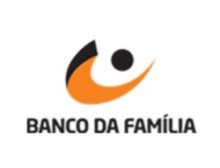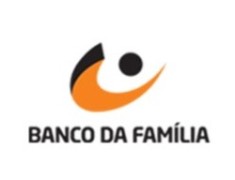Projects in Action with Banco da Familia
 10 January 2023
10 January 2023 Oikocredit works with partners across Asia, Africa, Latin America and the Caribbean to support low-income communities, create social impact and build resilient and sustainable businesses.
We carefully select partners who share our values and social inclusion goals so that, together, we can improve environmental, economic and social performance.
Community-focused strategy
Oikocredit’s new 2022-2026 strategy focuses on increasing community resilience by innovating and expanding the scope of our activities to include housing, education, healthcare, and water and sanitation. We adopt a bottom-up approach to ensure we learn from the organisations working with low-income people.
As part of this new community-focused approach, Oikocredit is dedicated to supporting its partners active in these areas, partners like Banco da Familia in Brazil.
Banco da Familia is a Brazilian microfinance institute (MFI) founded in 1998 by the Chamber of Women Entrepreneurs, Women's World Banking and local entrepreneurial associations. Over the last 20 years, it has grown into the largest microcredit organisation in southern Brazil, providing credit to micro and small entrepreneurs in more than 130 cities across three different states.
It has partnered with Oikocredit since 2004 when it received a US$ 30,000 loan.
Boosting access to housing and sanitation in Brazil
Brazil has a large number of small enterprises in the low-income sector. MFI Banco da Familia believes that credit should not only be a tool to support productive businesses, but it must also focus on giving low-income people access to the financial system. This mirrors Oikocredit’s financial inclusion strategy to provide responsible financial services that contribute to financial security and economic empowerment.
With this mission at the forefront, Banco da Familia adopts practices that put clients’ needs at the centre. By strengthening the channel between client feedback, loan officer visits and senior management, it develops affordable financial products for entrepreneurs that fit their needs in a more holistic way.
To bring financial initiatives to market, Banco da Familia first collect information from the end client. This is used to develop capacity building programmes, raise awareness of poor conditions and start the implementation process. Collecting client feedback and offering products and services that meet clients’ needs are also key topics that Oikocredit focuses on during due diligence and monitoring of partners.
Banco da Familia developed three distinct retail loans specifically designed to fund housing renovation projects, affordable new housing projects and water, sanitation and hygiene (WASH) projects.
Housing renovations: Recognising pent-up housing demand
The housing renovations product was developed in 2004. Loan officers had become aware of pent-up demand from clients for housing renovations. Initially, clients requested working capital loans to develop home working spaces, but the scope soon broadened to include other home improvements. This created larger financing opportunities for Banco da Familia and established a strong bond between staff and families.
The product provided loans for small to medium renovations designed to meet home improvement needs related to health, accessibility and security. Credit agents were assigned to guide customers to prevent over-indebtedness.
Affordable housing: Increasing accessibility and dignity
The affordable housing product followed in 2012, designed to increase accessibility to basic housing and improve housing conditions. Financing for house construction is typically constrained by factors such as the cost of materials, land ownership and insurance. However, Banco da Familia recognised how progressively improving housing enhanced the families’ self-esteem. The product was created to service a target group who lacked access to traditional banking, such as people with no formal land property rights or no access to the rental market. It found that small investment amounts translated into higher levels of dignity. And for those living in poorly constructed and often dangerous housing, it could also save lives.
The product also created wider social impact in the local forestry sector. SME unions had been struggling with the declining prices of wood and increasing local bankruptcies. Banco da Familia joined the effort to overcome the crisis and stimulated demand by partnering with timber manufacturers and housing developers.
WASH: Improving living conditions
In 2017, Banco da Familia successfully rolled out its latest product: a retail loan designed to fund water, sanitation and hygiene projects. The WASH product provides loans to improve and construct water and sanitation facilities. This product was born out of the close relationship between the MFI and its clients after the first two successful housing products.
Only a few municipalities were running programmes for families with no access to clean water or sanitation facilities, so Banco da Familia saw an opportunity to leverage its renovation experience by launching specialised solutions. It also recognised the benefits of improved living conditions, such as better disease control and increased earning capacities for local communities.
The MFI embraced customers’ access to new technologies by allowing them to request loans by WhatsApp and social media, as well as in person at the branches and with loan officers.
Positive network effect
Banco da Familia has reached more than 140,000 people with accessible retail loans. And through its user-centred financial products, capacity building programmes and a growing trust between loan officer and client, it has seen a positive network effect and a rise of community leaders.
Oikocredit supports partners like Banco da Familia on its journey to deliver flexible and innovative financial products to community-focused projects. Our partners have the local understanding to identify the unique needs of their clients and to monitor impact on local communities. By learning more about partner organisations, Oikocredit can finance the solutions that help to empower low-income communities.
Read more about Oikocredit partner Banco da Familia in the detailed case study and discover how it develops innovative products that serve low-income families and businesses in Brazil.
Portuguese version of the case study: Banco da Familia Portuguese
Spanish version of the case study: Banco da Familia Spanish
Archive > 2023 > January
- 31 January 2023 - Oikocredit invests US$ 5 million in Yellow to support solar energy in Africa
- 25 January 2023 - Creating more positive change! Interview with Dave Smit
- 24 January 2023 - Oikocredit Equity partner Avanti wins prestigious Indian award
- 10 January 2023 - Projects in Action with Banco da Familia
- 03 January 2023 - Being mindful about adding value and realising impact is essential for Oikocredit’s success

